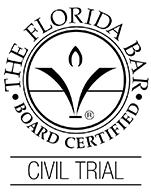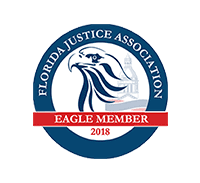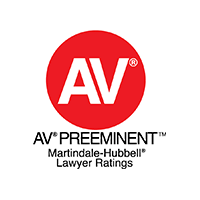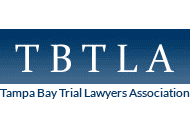The law on comparative negligence in Florida
Florida is a pure comparative negligence state. Comparative negligence simply means that when there is an accident, multiple parties can share fault. When comparative negligence is alleged, it leads to an “apportionment of fault” between the parties. Any negligence on the part of the plaintiff will not completely bar recovery like in states that use the harsh pure contributory negligence rule, but it will reduce the amount of damages the plaintiff can recover based on the plaintiff’s percentage of fault.
The principles of comparative negligence are most often used by adjusters to reduce the value of claims. They will usually offer reduced amounts of compensation depending on how much fault they determine was attributable to you. Insurance adjusters know the numbers, most people will never file a lawsuit, so they play hardball with their evaluations. The reality is once you file a lawsuit, case evaluations tend to increase.
Models of comparative negligence
There are three major models of comparative negligence states use.
- Pure comparative negligence: In pure comparative negligence states, the court treats your level of negligence in terms of percentages. The jury will then reduce whatever monetary verdict it would have given in your favor by the percentage of your negligence. For instance, if you were held to be 20% at blame and the jury awards a verdict of $100,000, your eventual compensation would be reduced by 20%. This means you will be awarded $80,000. These states don’t put a cap on your level of negligence, though. You can still recover compensation even if you were 99% at fault.
- Modified comparative negligence: These states also apportion blame between the parties in terms of percentages. Just like in pure comparative negligence states, they also reduce the amount awarded to the plaintiff as compensation, based on how much fault they had in the accident. However, these states set a cap on the acceptable level of negligence by the plaintiff. Some follow the 50% rule, while others follow the 51% rule. This means if your level of negligence is up to 50 or 51% in these states, you cannot collect any compensation. But for a lower negligence (49% or lower), you may recover compensation.
- Pure contributory negligence: In these states, the position with regard to shared negligence is very strict. States that follow this model do not recognize the ability of a plaintiff to still collect damages when they were at fault. This means if a jury finds that you were even 1% at fault, you cannot collect anything. There are only four states – Alabama, Maryland, North Carolina, and Virginia and the District of Columbia that follow this model.
Frivolous defenses and comparative negligence in Florida
It is shocking how seldom defendants admit liability in lawsuits. Even in the clearest of liability cases, at-fault drivers deny liability in the initial pleadings. This causes unnecessary expense and delay, as depositions of witnesses and law enforcement officers are necessary to prove fault. The most frustrating part of these frivolous defenses is that just before trial, the defense can admit liability, and act like they have done so from the beginning in front of the jury. There are some techniques to deal with this, but unfortunately, the current law in Florida is not designed to punish defendants and their lawyers for admitting fault just before trial. Most judges will simply say, “it’s not relevant.” BUT IT SHOULD BE.
The ticket (traffic citation) doesn’t matter in comparative negligence in Florida
It is hard for most people to accept, but who got the ticket (traffic citation) is not admissible in civil jury trials in Florida. Even saying “I didn’t get the ticket” in a jury trial for damages will result in a mistrial and possible sanctions by the trial judge. The public policy behind this is that often, law enforcement is not a witness to the traffic crash, and their decisions are based in part on mandatory statements from the vehicle operators at the scene that are protected by the traffic crash report privilege. Also, It is the job of the jury to be the decision-makers, not the law enforcement officer.
Traffic crash report privilege and comparative negligence in Florida
Florida statutes 316.066(4) specifically provides that any statement made to law enforcement for the purpose of completing a crash report shall be without prejudice to the individual and that such a statement may not be used as evidence in any trial, civil or criminal.
This creates the odd situation where at-fault drivers admit to causing the accident at the traffic scene but later change their story after talking to the insurance company and the insurance company’s lawyers. Even when you can read their statement clear as day in the traffic crash report, the jury is never allowed to hear what was said at the scene.


![cftla-member[2]](https://www.1800askdave.com/wp-content/uploads/2022/03/cftla-member2.png)
![cftla-member[3]](https://www.1800askdave.com/wp-content/uploads/2022/03/cftla-member3.png)










